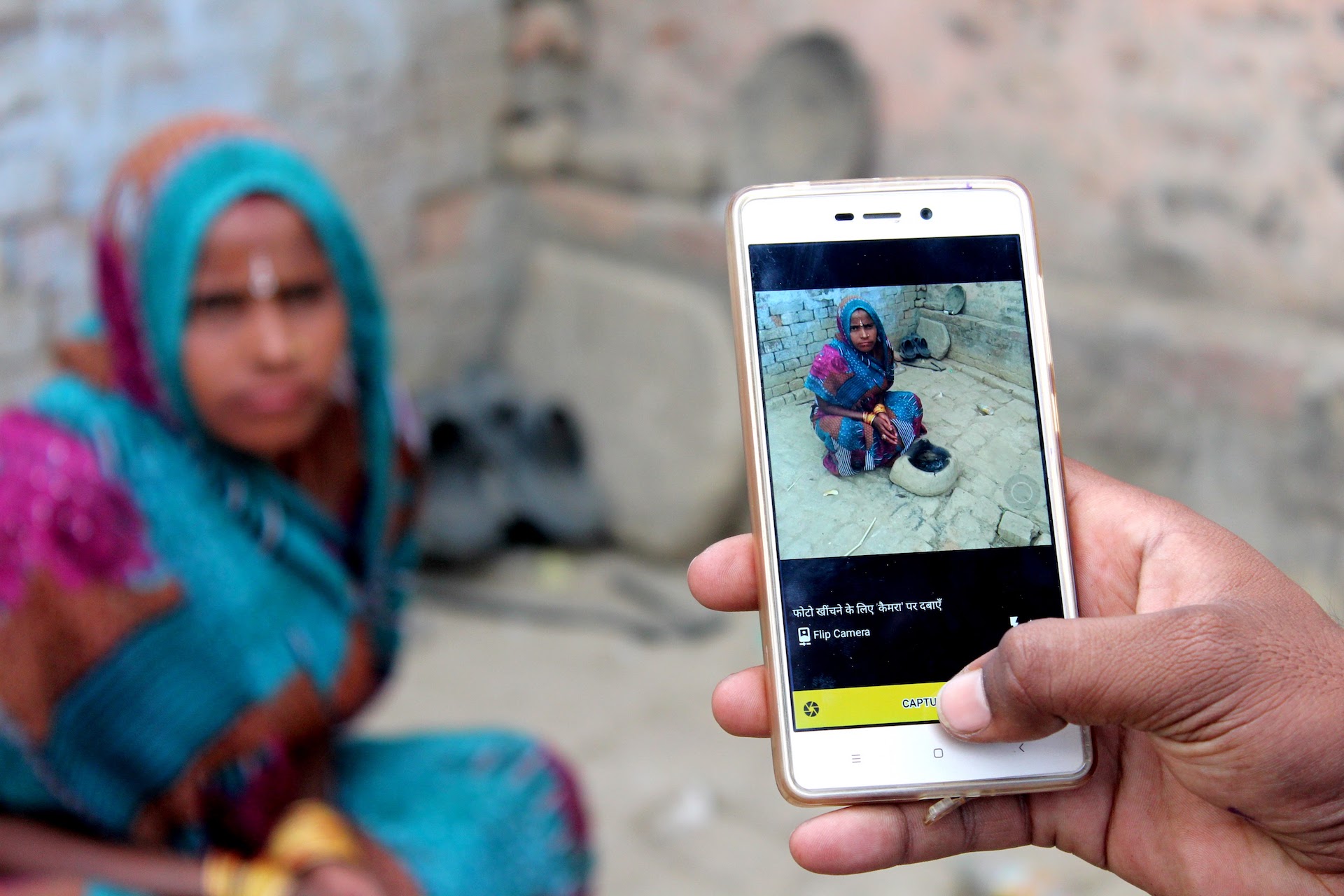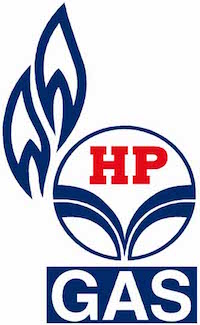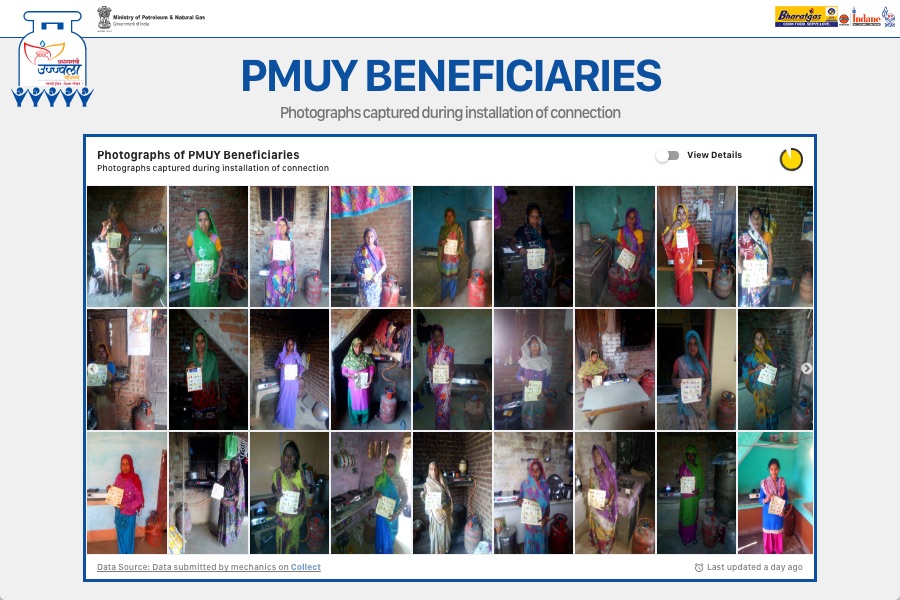
Case study

Case study
As part of the Ujjwala Yojana scheme, the Ministry of Petroleum and Natural Gas has given out 72 million new LPG connections. They partnered with us to track each new installation and ensure that each new cylinder is installed safely.

Ministry of Petroleum and Natural Gas

Bharat Gas

Indian Oil

Hindustan Petroleum
Government
Business
India
In May 2016, the Ministry of Petroleum and Natural Gas launched Pradhan Mantri Ujjwala Yojana, its flagship scheme to ensure access to clean cooking fuel. The scheme aims to provide free LPG (liquified petroleum gas) connections to 80 million women under the poverty line by 2020.
The Ministry of Petroleum and Natural Gas partnered with us to use data to carry out the scheme effectively. We focused on three aspects of the scheme; after figuring out where to open new centers and tracking the LPG application process, we set out to ensure that new LPG connections were installed safely.
Learn moreTo sustain a scheme like this, you need information. You need a monitoring mechanism which tells you the ground reality. This is why we decided at the onset of the scheme to use a digital platform in the entire process.
Cabinet Minister for Petroleum & Natural Gas
Government of IndiaThe Ujjwala Yojana scheme has given out 72 million new LPG connections so far. However, since all these connections were given to people who had never used LPG cylinders before, it was important to ensure they were installed safely. For example, the stove should ideally be away from flammable objects, above the height of the cylinder, and placed on a stone — not wood — surface.
To check if new connections were being installed safely, every distribution center equipped its mechanics with Collect, our mobile data collection app.
As each LPG application was approved, the applicant's data was automatically pulled from the oil marketing companies' databases and loaded into Collect. Then, when a mechanic went to install each new connection, they used Collect to access the applicant's data and collect photos and data about how the new connection was installed.
The first step was training thousands of mechanics across India. We also trained distributors and trainers to build their knowledge about accurate data collection.
Every day, mechanics across the country — often in rural, remote areas without internet connection — collected thousands of data points on every new LPG connection.
We aggregated photos of all new connections in a single real-time dashboard, where officials could quickly find patterns or spot and deal with problems.
We have uploaded close to 100,000 photographs on the portal [as of August 2017]. It’s a great step forward in terms of transparency... I can immediately go to the portal [and] check whether that particular beneficiary has the connection or not.
Joint Secretary
Government of IndiaLPG mechanics were often first-time smartphone users, but they had no trouble with Collect. The intuitive UI/UX made training thousands of people a breeze.
Rural India often does not have mobile or internet service. Data was saved to phones' local storage, then synced when internet was available.
The media features in Collect help mechanics capture photos before and after installation of every new LPG cylinder.
The entire Collect app — including action buttons and instructions — could be changed from Hindi to local languages in a single click.

Every photo of an installed connection is immediately pulled into our real-time dashboard. Ministers and officials use this dashboard to quickly spot safety issues.
For example, whenever officials see a cylinder installed unsafely — on a wood surface, underneath a straw roof, etc. — they immediately send surveyors back to move the cylinder.
The dashboard is also helpful for identifying bad data. For example, officials initially saw photos of tables or fields — sent by mechanics who weren't installing their assigned connections. Ministers immediately called those distribution centers and reprimanded them. Real photos quickly started showing up from those centers.